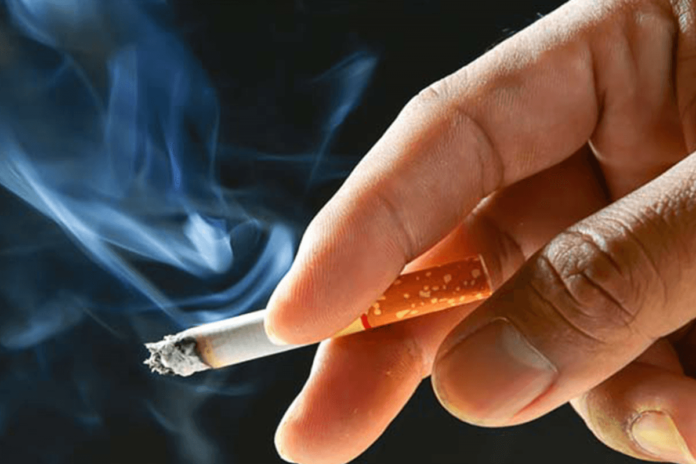In Nigerian secondary schools, a silent epidemic looms large, casting a shadow over the hopes and aspirations of countless young minds. Behind the mask of academic pursuit, a disturbing trend emerges the alarming rise of drug abuse among students.
From urban centers to remote rural villages, the grip of addiction tightens, threatening to derail the futures of Nigeria’s youth. In this exploration, we delve into the complexities of this pressing issue, unraveling its roots, examining its consequences, and seeking solutions to safeguard the well-being of our nation’s students.
This article will enlighten readers on the multifaceted dimensions of drug abuse among secondary school students in Nigeria. It will provide insights into the prevalence rates of substance misuse, identify the common substances abused, and elucidate their detrimental effects on both the physical and mental health of students.
Additionally, readers will gain an understanding of the socioeconomic factors and peer dynamics driving this epidemic, as well as the urgent need for targeted interventions to mitigate its adverse consequences. Through this exploration, readers will be empowered with knowledge to recognize the signs of drug abuse, advocate for preventative measures, and support initiatives aimed at fostering a healthier and more promising future for Nigeria’s youth.

1) Secondary School Drug Abuse Rates:
Recent studies have shed light on the pervasive nature of drug abuse within Nigeria’s secondary school system. For instance, a nationwide survey conducted by the National Drug Law Enforcement Agency (NDLEA) revealed that over 40% of secondary school students have experimented with illicit substances, with cannabis and codeine syrup emerging as the most commonly abused drugs.
Furthermore, regional disparities highlight the varying degrees of prevalence, with urban areas experiencing higher rates of drug use compared to rural counterparts. This concerning trend underscores the urgent need for targeted interventions to address the root causes and mitigate the widespread impact of substance misuse among Nigerian youth.
2) Student Health Impacts of Substance Abuse:
The spectrum of substances abused by secondary school students in Nigeria is diverse, ranging from readily available marijuana to easily accessible pharmaceuticals like codeine syrup. These substances exert profound effects on students’ health and academic performance, contributing to a myriad of physical and psychological complications.
For instance, prolonged cannabis use can impair cognitive function, memory retention, and overall academic achievement. Similarly, the abuse of codeine syrup, often mixed with soft drinks to create a potent concoction known as “lean” or “sizzurp,” can lead to addiction, respiratory depression, and even fatal overdoses. Such detrimental consequences underscore the urgent need for comprehensive education and intervention strategies to safeguard the well-being of Nigeria’s youth.

3) Secondary Students’ Drug Abuse Factors:
Socioeconomic factors play a pivotal role in shaping the landscape of drug abuse among secondary school students in Nigeria. For many students, socioeconomic disparities create environments ripe for substance misuse as they seek solace or escape from their circumstances. For instance, students from low-income households may turn to drugs as a coping mechanism for the stressors associated with poverty, while those from affluent backgrounds may experiment with substances as a result of peer pressure or boredom.
Additionally, limited access to educational and economic opportunities can exacerbate feelings of hopelessness and increase the allure of drugs as a means of temporary relief. Addressing these systemic inequalities is paramount in crafting effective prevention and intervention strategies to combat drug abuse among Nigeria’s youth.
4) Peer Influence on Drug Use:
Peer pressure and social influences wield significant influence over the drug use behaviors of secondary school students in Nigeria. Within the school environment, peer groups often serve as powerful conduits for the initiation and normalization of substance abuse. For instance, students may succumb to peer pressure to fit in or gain acceptance within their social circles, leading them to experiment with drugs they might otherwise avoid.
Moreover, the pervasive presence of drug culture in media, music, and social media platforms further reinforces these behaviors, creating a feedback loop of influence that can be difficult for students to resist. As such, fostering a supportive and inclusive school culture, coupled with a comprehensive education on the dangers of substance abuse, is essential in equipping students with the resilience to navigate peer pressures and make informed choices about their health and well-being.

5) Nigerian Secondary School Drug Prevention:
Several strategies and interventions have been implemented to prevent and address drug abuse within Nigerian secondary schools. One approach involves the integration of drug education and awareness programs into the school curriculum, providing students with accurate information about the risks and consequences of substance abuse.
Additionally, school-based counseling services and support groups offer students a safe space to seek guidance and assistance if they are struggling with substance misuse. Moreover, collaborative efforts between schools, families, community organizations, and government agencies facilitate the implementation of holistic prevention initiatives, such as community outreach programs, peer mentoring, and parental involvement workshops. By adopting a multifaceted approach that targets both individual behaviors and broader systemic factors, Nigerian secondary schools can effectively combat drug abuse and promote the health and well-being of their students.

As the curtains draw on this exploration of drug abuse among secondary school students in Nigeria, one undeniable truth emerges: the battle against substance misuse is far from over. By arming ourselves with knowledge, empathy, and collective action, we possess the power to rewrite the narrative, to build a future where the dreams of Nigeria’s youth are not overshadowed by the specter of addiction. Let us stand united in our resolve to safeguard the well-being of our nation’s students, for in their flourishing lies the promise of a brighter tomorrow.




